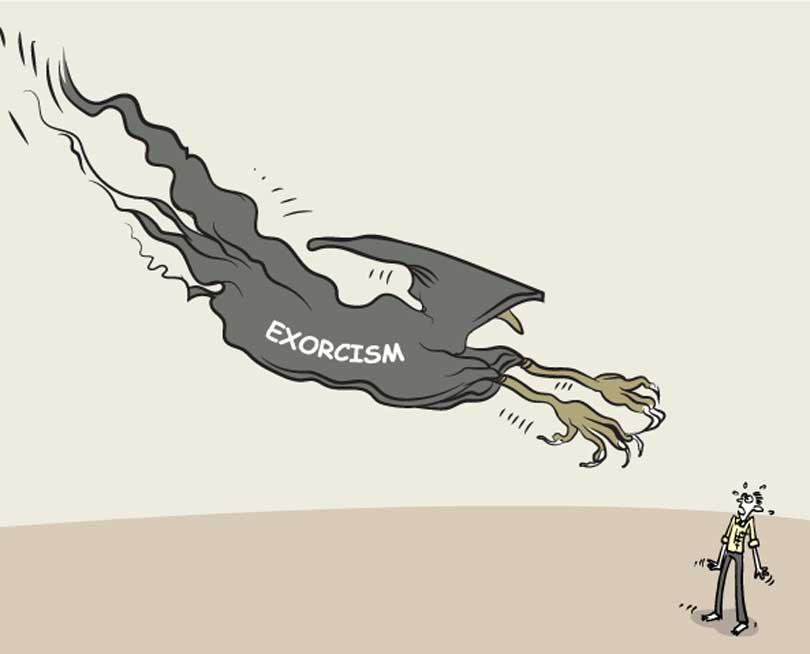Reply To:
Name - Reply Comment

The incident where a nine year old girl in Delgoda died on March 2 while performing what is called exorcism by a woman, has become just another incident for the media and most importantly for the authorities concerned- the Education Ministry, National Child Protection Authority, National Secretariat for Early Childhood Development, Department of Probation and Child Care Services, Police Children and Women’s Bureaus and the NGOs that are concerned about the child’s rights.
According to police, the mother of the girl believed her daughter had been possessed by a demon and took her to the home of the exorcist so a ritual could be performed to drive the evil spirit away. The exorcist first applied oil on the girl and then began to hit her repeatedly with a cane. When the girl lost consciousness, she was taken to a hospital, where she had died.
The woman who performed the ritual on the girl is said to be known in the area for offering such services in recent months and police were now investigating whether anyone else had fallen victim to such cruelty.
The law might take its course in this case and the woman who performed the exorcism might be punished and even the girl’s mother too might be taken to task. However, nobody seems to have thought to go beyond that and find a solution to the root cause of the problem, despite we hear similar stories from around the country occasionally since long.
For instance, in 2017, a 38-year-old woman, a mother of two children in Bangadeniya had died during a similar exorcist exercise. The woman who had thought that an evil spirit is obstructing her progress had sought the assistance of an exorcist in the area and during the “treatment” the man had offered a liquid for the woman to drink. Upon drinking the liquid the woman had collapsed and had died on admission to the hospital. The exorcist had been arrested by Dummalasuriya police.
Sometimes, the exorcists themselves have succumbed to their own dangerous rituals. A man in a Colombo suburban area had died in 2013 after a bizarre and botched ritual to drive out what he said were evil spirits from a house. The man first sacrificed a cat and was then buried himself in a shallow grave after instructing the onlookers to dig him out once he gave a signal by pushing a sword he was carrying, through the ground. Even after three hours, there was no sign of the sword coming up from the grave and that when the onlookers decided to pull him out anyway, he was found unconscious. He was taken to hospital but was pronounced dead already.
Similar stories are occasionally heard mainly from other South Asian and African nations. But no country seems to have thought of saying enough is enough to these superstitious practices. Rather we hear in many countries, the political leaderships are hand in glove or sponsoring such acts. We witness media also giving hype for such superstitions such as various syrups were introduced to treat COVID-19, which said to have produced with the help of Goddess Kali or King Rawana. Also advertisements on sorcery, hypnotism, wizardry, mesmerism etc. could be widely seen in the media.
We are being taught stories about men with supernatural powers and miracles through our religious literature and story books that carry fables and ghost stories where we encounter with flying men and animals talking like human beings. Nowadays children watch cartoons with such men and animals. However, with the rational education gaining ground in our lives, we confine those stories either in our religious activities or to entertain our children.
No government or institution can prohibit various beliefs – religious or otherwise – among the people. However, the general education and the religious education in a country should be so scientific to enlighten the masses in a manner that at least they could discern what is harmful to individuals and the society from their beliefs.